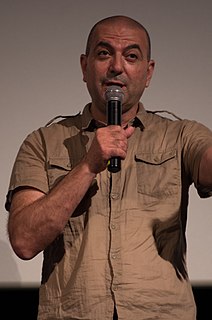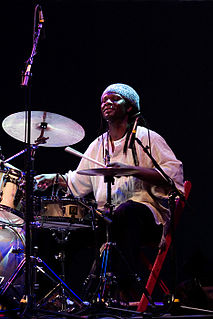A Quote by Ludwig Wittgenstein
If we spoke a different language, we would perceive a somewhat different world.
Quote Topics
Related Quotes
Politics is different than movies. Politics are controlled by leaders. Leaders of every country have different interests. And they try to explain to their people why they should take one side or the other side. But in the movie its doing the opposite. It allows you to have a Universal Experience. You don't watch it as politics but as a movie. You don't have different reactions all over. It's so universal a language. It's not a political language serving a political agenda. The language of cinema is a world language. With the Hollywood movie, it brings about the same reaction wherever it goes.
The Jews started it all-and by 'it' I mean so many of the things we care about, the underlying values that make all of us, Jew and Gentile, believer and aethiest, tick. Without the Jews, we would see the world through different eyes, hear with different ears, even feel with different feelings ... we would think with a different mind, interpret all our experience differently, draw different conclusions from the things that befall us. And we would set a different course for our lives.
All the different nations in the world, despite their differences of appearance and religion and language and way of life, still have one thing in common, and that is what's inside of all of us. If we X-rayed the insides of different human beings, we wouldn't be able to tell from those X-rays what the person's language or background or race is.
The language in New Mexico is very different. At first when you hear the speech here, you don't really know what to do with it, but then I just went with it, because as a writer as well as a translator I do believe that translated words are not different names for the same thing. They're different names for different things. I tried to stay as true as I could, so I used Ruben Cobos' dictionary of Southwestern Spanish, and when I went into Spanish I never assumed the word I would use would be the word a nuevomexicano would use.
When I started doing improvise music in Europe, in the beginning I thought the way that Europeans were interpreting the reconstruction of deconstruction of this thing that we call jazz - of course it's different than what Americans do, because Europeans have a different history, a different sensibility and so forth - the nature of the creative process itself it's the same; but what comes from that creative process is different, because you have a different history, you have a different society, different language.
We've got so many different cultural groups in my family that I've had to learn to accommodate them in different ways. My father speaks different to my mum. My mum speaks different to my grandmother. Everybody speaks different, so you find you start tweaking your language to be more accessible to people.
We need to have points of view from lots of different types of people. People who have different backgrounds, different parts of the world, who maybe perceive gender differently. We're in this time where we have social media, we have the ability to share so much, that I think that we need to create more space and more opportunity for people that are just outside of the typical cliched binary roles.
There is a sense in which we have - like, I go in to teach a class; I may be somewhat different than I would be talking to you, although it's related because it's public. I'm very different with my roommate or my lover or my cats. But I don't know if that means you're acting, really, if you're being truthful.









































